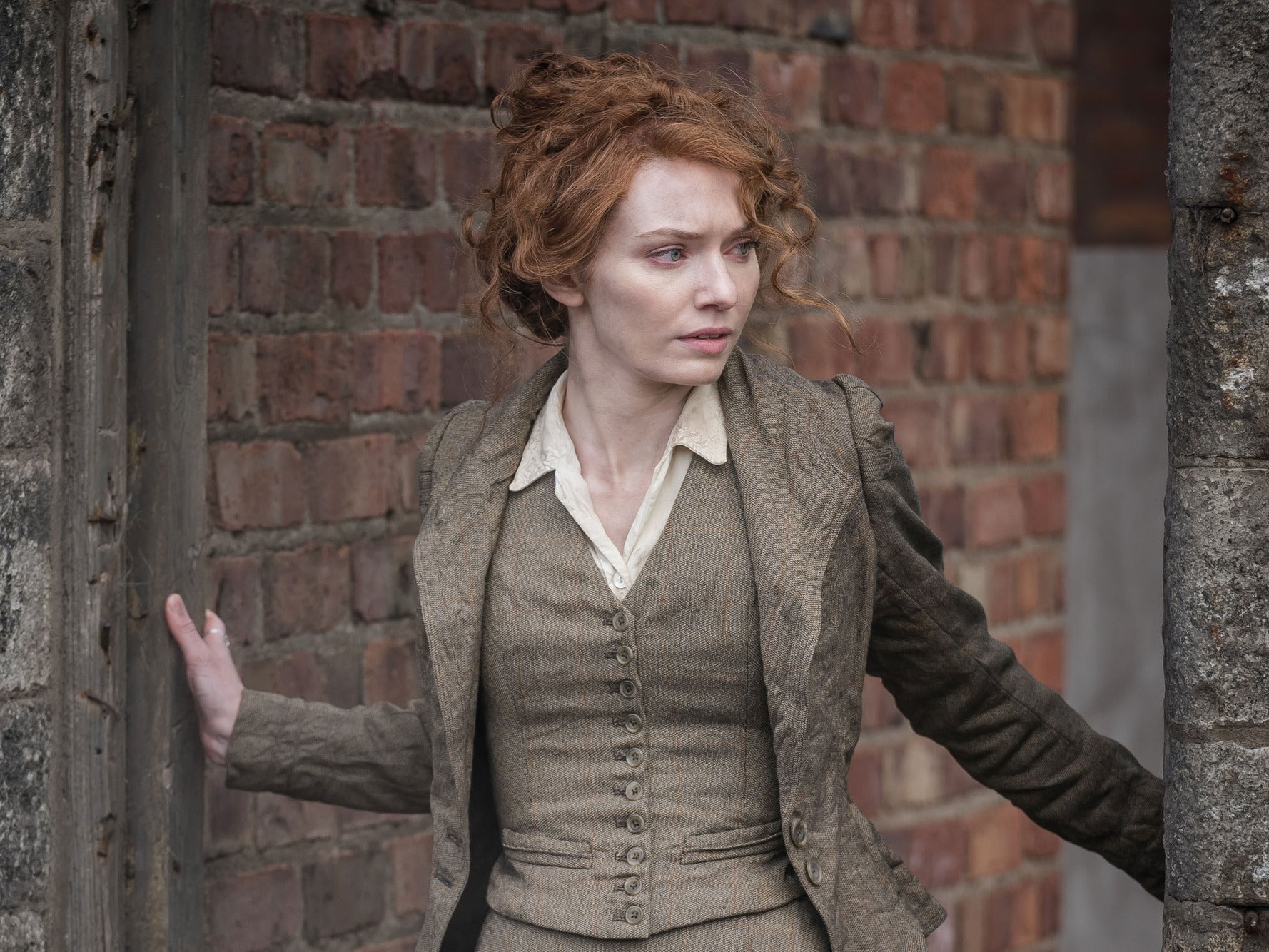The Independent's journalism is supported by our readers. When you purchase through links on our site, we may earn commission.
War of the Worlds review, episode two: The smashing and killing is ramped up a notch
It’s surprising that in all the scandalised chatter about political correctness, nobody has questioned the timing of reviving a story such as this

Your support helps us to tell the story
From reproductive rights to climate change to Big Tech, The Independent is on the ground when the story is developing. Whether it's investigating the financials of Elon Musk's pro-Trump PAC or producing our latest documentary, 'The A Word', which shines a light on the American women fighting for reproductive rights, we know how important it is to parse out the facts from the messaging.
At such a critical moment in US history, we need reporters on the ground. Your donation allows us to keep sending journalists to speak to both sides of the story.
The Independent is trusted by Americans across the entire political spectrum. And unlike many other quality news outlets, we choose not to lock Americans out of our reporting and analysis with paywalls. We believe quality journalism should be available to everyone, paid for by those who can afford it.
Your support makes all the difference.A baffling amount of attention has been paid to the supposed wokeness of the BBC’s adaptation of The War of the Worlds. Several national publications have joked that it has “all gone woke in Woking” – the Surrey town in which HG Wells’ 1898 disaster novel, and this new three-part series, is set. The reason? One of the characters is female, and another vaguely hints at being gay. We must alert the church elders.
In last week’s first episode of this intriguing, if hardly pacy, adaptation, protagonist George’s biggest problem was that his ex-wife/cousin was refusing to divorce him, and thus he couldn’t marry his new girlfriend Amy (Eleanor Tomlinson, sharing just enough chemistry with Rafe Spall’s George to sell the relationship, but no more). Until, that is, a strange meteor crash landed in their sleepy village, cracked open, and revealed an arachnoid machine that proceeded to murder everyone in its path. The invaders, it was deduced, had come from Mars.
The second episode begins a few years on. Amy is searching in vain for her lost partner, their son George Jr in tow. Gone is the lush greenery, the quaint villages and the smog-filled London cityscape. In its place is a vast, Tatooine-like desert bathed in red light. The Martians seem to be dead, killed shortly after arrival, but the chaos they unleashed remains. Food is scarce. Instead of crops, red glassy shards jut out of the ground. The survivors don’t sing “God Save the King”, but “God Save Us All”. It is a bleak state of affairs. Well, as far as I can make out, squinting at the screen, it is. The BBC has a frustrating habit of hiding its action in the shadows, as if darkness equals drama.
It’s generally accepted that Wells’ novel, about the invasion of Earth by Martians, is an allegory – though for what, nobody can quite agree. Is it a prescient environmentalist warning? A fable about the hubris of humanity? A critique of imperialism? I’m surprised that in all the scandalised chatter about political correctness, nobody has questioned the timing of reviving a story such as this: a foreign species arrives in Great Britain and destroys the natural order of things. “It seems that something has arrived in England,” announces Nicholas Le Prevost’s Chamberlain. “It has completely destroyed Weybridge railway station and massacred an entire battalion.” Another character declares: “Unless we think of some way to stop this, this will not be our planet anymore.” Is this not uncomfortably evocative of xenophobic Brexit rhetoric? Hey ho. Maybe I should just enjoy the smashing and killing.
Anyway, the smashing and killing ramps up a notch this episode, as we jump between that desert future and the days just after the Martians landed. There is a tense Dunkirk-ish scene in which citizens are evacuated on rickety boats towards an uncertain destination, during which Amy and George are reunited. Picking up a few needy newcomers, they embark on a Walking Dead-style hunt for food and shelter.
Still, despite some impressive set-pieces, the show still has the unhurried tenor of a 10-part series. We still don’t know why the Martians came to Earth in the first place. Or whether they actually were killed upon arrival, or are simply lying dormant. A lot of questions need answers, and with just one final episode remaining, the show surely has no choice but to fire on all cylinders for its final outing.
Join our commenting forum
Join thought-provoking conversations, follow other Independent readers and see their replies
Comments